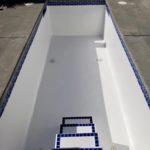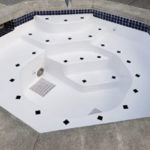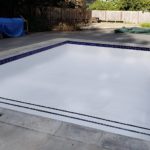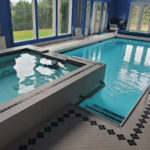Las Vegas is known for its luxurious pools and vibrant nightlife, but water conservation is more important than ever with the city’s desert climate.
Pool resurfacing is a key aspect of water conservation in Las Vegas, as it not only helps prevent water loss from leaks but also promotes the use of water-efficient materials.
This article will explore why pool resurfacing Las Vegas, NV is necessary, how it contributes to water conservation, its benefits, and how to choose the right pool resurfacing company for water conservation.
Stay tuned to learn more about the crucial role of pool resurfacing in water conservation efforts in Las Vegas.
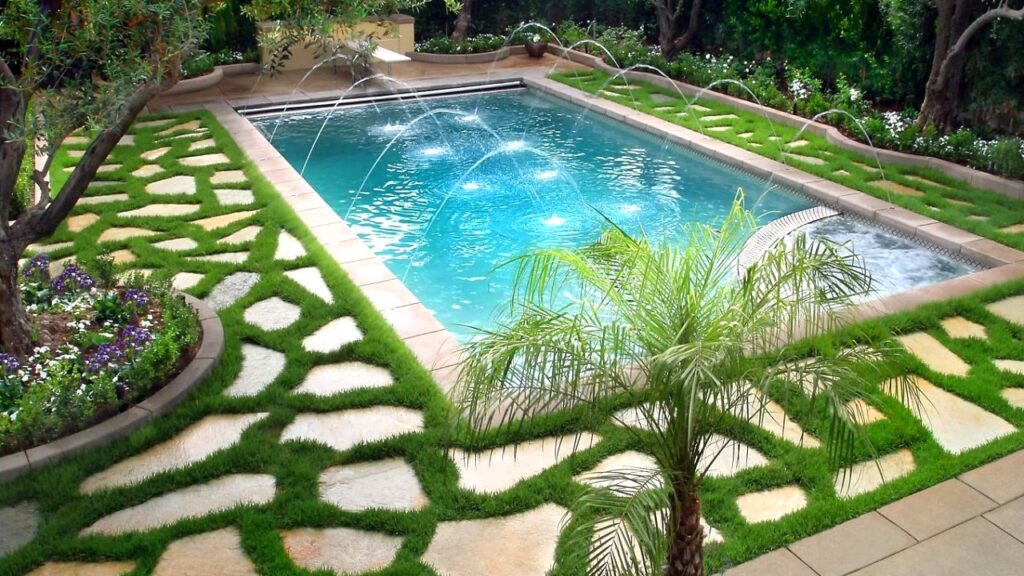
The Importance of Water Conservation in Las Vegas
Water conservation in Las Vegas is crucial due to the city’s rapid population growth, arid climate, and ongoing droughts.
This makes it essential for residents and municipalities to adopt sustainable water usage practices to ensure a reliable water supply for future generations in this urban area.
What is Pool Resurfacing?
Pool resurfacing involves updating the finish of a swimming pool to improve its aesthetic appeal and functionality.
This is particularly popular in Las Vegas due to the prevalent use of swimming pools in residential areas.
Various materials are used in pool resurfacing, including pebble tec, plaster, and fiberglass. Pebble tec is durable and textured, while plaster provides a smooth and classic look.
Fiberglass Pools Las Vegas, NV, is known for its low maintenance and longevity. In Las Vegas, where the scorching heat can be harsh on pool surfaces, proper resurfacing can help maintain the pool’s integrity and prevent leaks.
Pool replastering services in Las Vegas are essential for keeping the pool in top condition and avoiding cracking or discoloration.
Why is Pool Resurfacing Necessary?
Pool resurfacing is necessary to maintain the pool’s structure, prevent water loss due to leaks, and ensure a safe and enjoyable swimming environment.
Over time, the surface of a pool can deteriorate due to constant use, exposure to elements, and aging. Cracks, stains, and rough textures can not only affect the aesthetics of the pool but also compromise its structural integrity.
By resurfacing the pool, these issues are addressed, prolonging its lifespan and preventing more severe damage that could potentially lead to leaks.
This maintenance not only saves money in the long run by avoiding costly repairs but also maintains the pool’s functionality for uninterrupted use.
How Does Pool Resurfacing Contribute to Water Conservation?
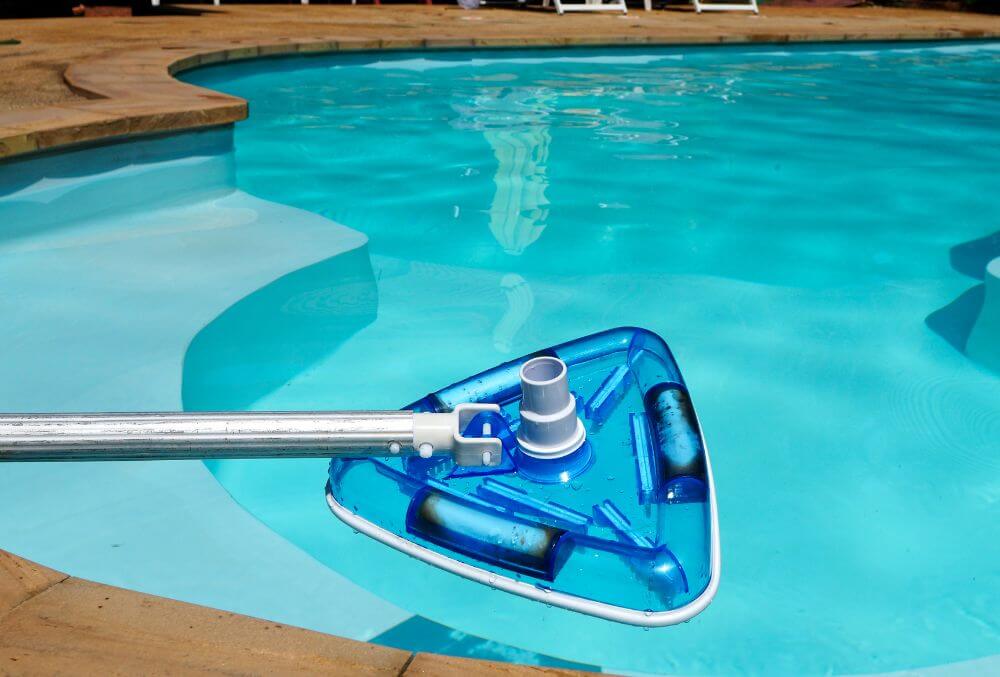
Pool resurfacing contributes to water conservation by incorporating water-saving measures that minimize water loss and improve the efficiency of water usage.
This makes an essential practice for homeowners in Las Vegas aiming to promote sustainability.
Reducing Water Loss from Leaks
One of the primary benefits of pool resurfacing is the reduction of water loss from leaks, which is crucial for effective water conservation.
Leaking pools not only waste a precious resource but also lead to higher water bills and unnecessary environmental strain.
By repairing the surface of the pool, you create a protective barrier that prevents water from seeping out, ultimately saving gallons of water every year.
Using Water-Efficient Materials
Using water-efficient materials during pool resurfacing not only extends the life of the pool but also promotes water conservation efforts in Las Vegas.
When considering pool resurfacing options, eco-friendly materials are a top choice.
These materials, such as recycled glass or pebble finishes, not only enhance the aesthetics of the pool but also help reduce water consumption.
By choosing these environmentally conscious options, pool owners can minimize water waste and contribute to sustainable practices.
These materials are designed to be durable, requiring less maintenance and reducing the need for frequent water refills. They are resistant to chemicals and UV damage, ensuring long-term sustainability.
Proper Maintenance to Prevent Water Waste
Proper maintenance after pool resurfacing is essential to prevent water waste, ensuring that the pool remains in optimal condition and contributes to overall water conservation efforts.
Regularly checking for leaks and repairing them promptly can significantly reduce water loss.
Installing a pool cover when the pool is not in use helps prevent evaporation and keeps debris out, reducing the need to top up the water frequently.
Monitoring water levels and chemical balances regularly ensures that the pool functions efficiently without unnecessary water usage.
Engaging in proper cleaning practices, such as skimming the surface and vacuuming debris, maintains the pool’s cleanliness and reduces the need for excessive backwashing, further conserving water.
What Are the Benefits of Pool Resurfacing for Water Conservation?
Pool resurfacing offers several benefits for water conservation, including saving water and money, improving the pool’s aesthetics, and increasing its lifespan, which are significant advantages for homeowners in Las Vegas.
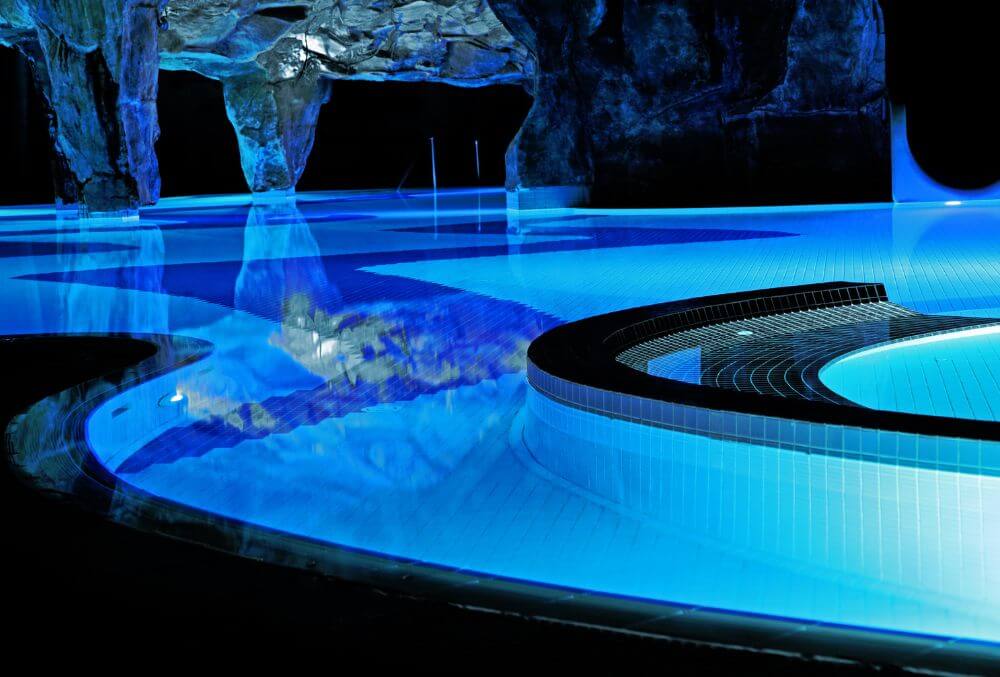
Saves Water and Money
By addressing leaks and improving efficiency, pool resurfacing can save significant amounts of water and reduce overall maintenance costs.
When a pool’s surface is deteriorating, it can lead to leaks that result in water loss.
By resurfacing the pool, these leaks can be fixed, preventing unnecessary wastage of water.
A worn-out pool surface may require more chemicals and energy to maintain proper balance and cleanliness, ultimately increasing maintenance costs.
Opting for pool resurfacing not only enhances the aesthetic appeal but also enhances the efficiency of the pool system, leading to long-term savings on water usage and operational expenses.
Improves Pool Aesthetics
Pool resurfacing improves the aesthetics of a pool by updating its finish, which is particularly valued by homeowners in Las Vegas who take pride in their outdoor living spaces.
There are several types of finishes commonly used in pool resurfacing to enhance the visual appeal. For instance, plaster finishes offer a classic, smooth look and are a cost-effective option.
On the other hand, pebble or aggregate finishes provide a more textured appearance and can add a luxurious touch to the pool.
Tile finishes are known for their durability and offer a wide range of design options, allowing homeowners to customize the look of their pool to suit their preferences.
Increases Pool Lifespan
Resurfacing a pool can significantly increase its lifespan by preventing damages that could lead to costly repairs or replacements.
Regular pool maintenance is essential in prolonging the lifespan of your swimming pool.
When you resurface your pool, you refresh its appearance and address any underlying structural issues.
By fixing these issues early through resurfacing, you effectively safeguard your pool from further deterioration.
Properly maintained pool surfaces also help maintain water quality and prevent leaks, contributing to the pool’s overall longevity.
Investing in resurfacing and consistent upkeep not only saves you money in the long run but also ensures that you can enjoy your pool for years to come.
How to Choose the Right Pool Resurfacing Company for Water Conservation?
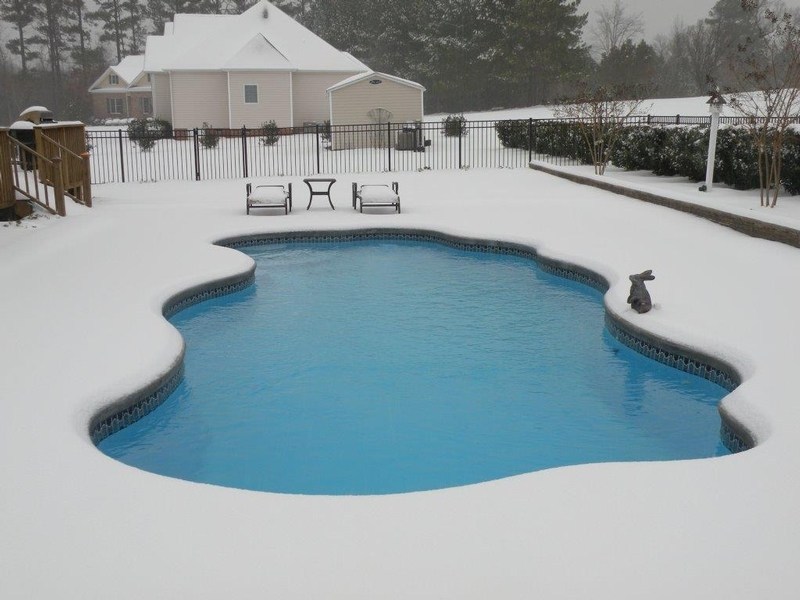
Choosing the right pool resurfacing company for water conservation in Las Vegas involves considering factors.
Look for Water-Saving Techniques
When choosing a pool resurfacing company, ensure they implement water-saving techniques that align with Las Vegas’s conservation goals.
One effective water-saving technique to look for is the use of eco-friendly materials during the pool resurfacing process. This includes opting for sustainable products that minimize water usage and reduce frequent maintenance.
Another important consideration is adopting smart technology, such as efficient pumps and filtration systems, that help conserve water without compromising the pool’s functionality.
Some companies also offer solutions like rainwater harvesting systems, which collect and repurpose rainwater for pool maintenance, thus reducing reliance on freshwater sources.
Consider the Company's Reputation
A company’s reputation is a critical factor when selecting pool resurfacing services in Las Vegas, as it reflects their reliability and quality of work.
Before committing to a pool resurfacing company, it is essential to thoroughly research their reviews and testimonials from past clients.
Customer feedback can provide valuable insights into the company’s professionalism, customer service, and overall satisfaction.
One effective way to assess a company’s reputation is to check online review platforms like Yelp and Google Reviews. These platforms can offer a comprehensive view of the company’s reputation based on authentic customer experiences.
Don’t hesitate to ask the company for references or examples of their previous work.
This firsthand information can give you a better understanding of the quality of their services and the satisfaction level of their clients.
Ask About Their Experience with Water Conservation
Inquiring about a company’s experience with water conservation can provide insights into their expertise and commitment to sustainable practices in pool resurfacing.
Choosing a company well-versed in water conservation signifies their awareness of environmental impact and resource preservation.
Inquire about their use of eco-friendly materials and technologies to minimize water consumption.
Discussing past projects where they successfully implemented water-saving strategies can offer concrete examples of their dedication to sustainability.
Evaluating a company’s track record with water conservation ensures eco-friendly practices and reflects their overall professionalism and innovation.
The Role of Pool Resurfacing in Water Conservation in Las Vegas
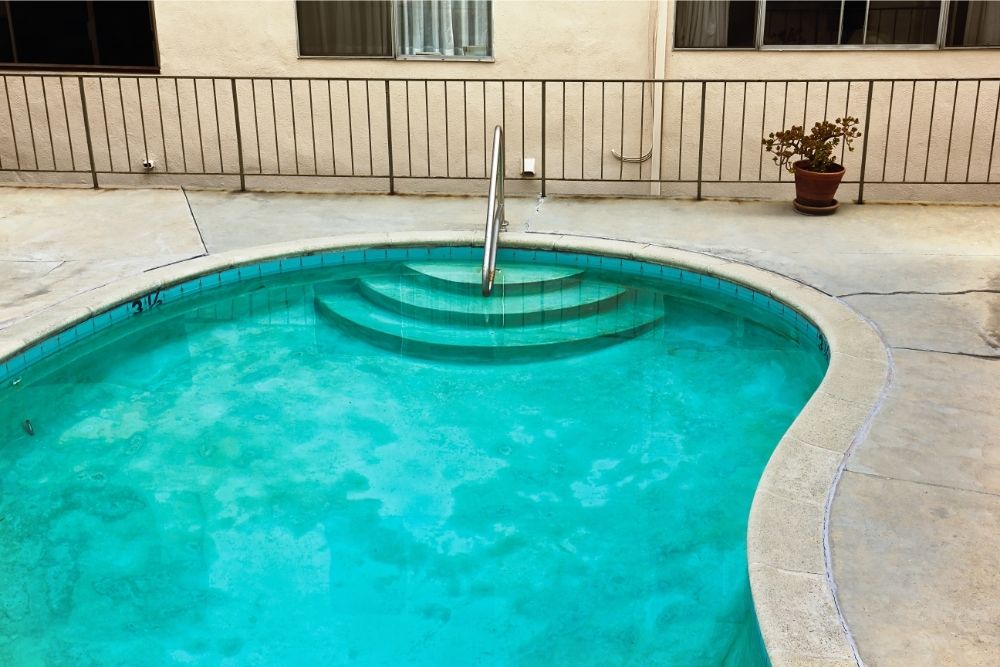
Pool resurfacing plays a significant role in water conservation efforts in Las Vegas by preventing water loss, promoting the use of water-efficient materials, and encouraging sustainable maintenance practices.
Thus, it is an essential component of the city’s broader water management strategy.
Resurfacing addresses issues such as leaks and cracks in pool surfaces, reducing water waste and contributing to overall water savings in the region.
Adopting water-efficient materials during the resurfacing process ensures that pools require less water for maintenance and operation, thus reducing water consumption over time.
Emphasizing sustainable maintenance practices during resurfacing extends the pool’s lifespan and conserves water, aligning with the city’s goals of sustainability.
Read on Related Blog: Process On How To Resurface Pool
